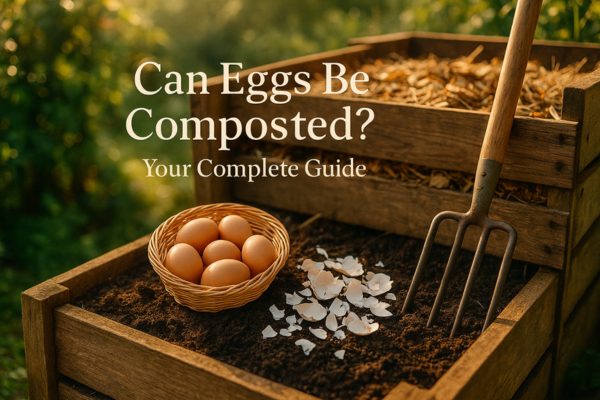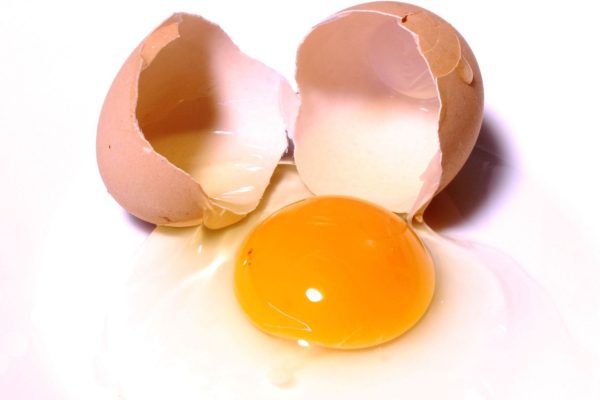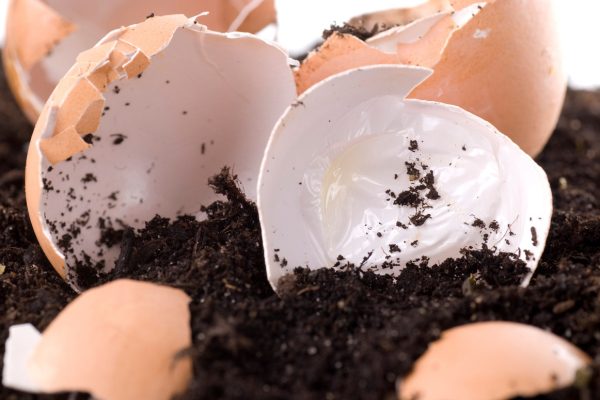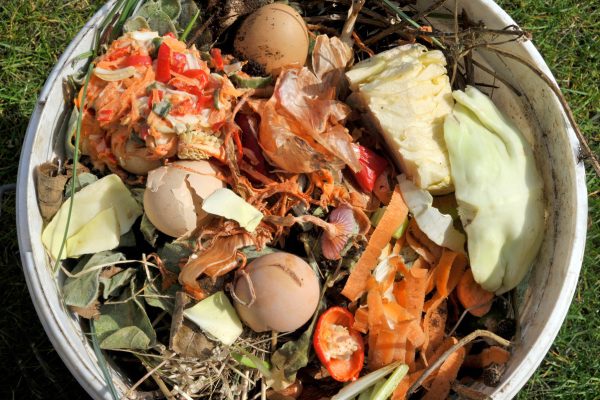

Many gardeners wonder if eggs can be composted safely, often receiving conflicting advice from different sources. The truth is that eggs absolutely can be composted, but success depends entirely on using the right techniques and understanding the unique challenges they present.
Yes, you can put eggs in compost – including whole eggs, raw eggs, cooked eggs, and eggshells. However, they require specific handling to prevent pest problems, manage odors, and ensure safe decomposition. This comprehensive guide reveals exactly how to transform your egg waste into nutrient-rich compost.
By mastering egg composting, you’ll reduce kitchen waste, enrich your soil with valuable nutrients, and contribute to sustainable living. From basic safety guidelines to advanced troubleshooting techniques, you’ll discover everything needed to compost eggs successfully.
Yes, eggs can be composted – but they’re considered an intermediate-level composting material that requires proper technique. Unlike composting vegetables, eggs need extra attention to prevent common issues.
All forms of eggs are compostable:
Success with composting eggs depends on three critical factors: proper preparation, correct placement in your pile, and maintaining optimal composting conditions. When done right, eggs decompose within 3-6 months and provide exceptional nutrients to your finished compost.
For those seeking quick results, jump to our step-by-step guide below. Otherwise, continue reading to understand the full benefits and considerations of adding eggs to your compost pile.

Raw eggs in compost are perfectly acceptable and often easier to manage than cooked eggs. The key is breaking them open before adding to your pile, as whole raw eggs decompose slowly and may attract unwanted pests.
Can raw eggs go in compost without causing problems? Yes, when properly prepared. Crack raw eggs and mix the contents thoroughly with brown materials like dried leaves or shredded cardboard. This prevents the formation of anaerobic pockets that create foul odors.
Are raw eggs compostable in all weather conditions? Temperature matters significantly. During summer, raw eggs break down within 4-6 weeks in an active pile. Winter composting takes longer, potentially 3-4 months for complete decomposition.
Can whole eggs be composted? While possible, it’s not recommended to add intact eggs to your compost. Whole eggs in compost create several challenges that make the process more difficult than necessary.
Can you put whole eggs in compost without breaking them? Technically yes, but unbroken eggs take significantly longer to decompose – sometimes up to 6 months or more. The shell acts as a barrier, preventing beneficial microorganisms from accessing the nutrient-rich contents inside.
Old eggs compost best when cracked open first. If you have expired whole eggs, crack them into your compost pile and crush the shells separately. This simple step reduces decomposition time by 50-75% and prevents the unpleasant surprise of finding intact eggs months later.
Can you compost scrambled eggs? Absolutely! Scrambled eggs decompose readily when mixed properly with carbon-rich materials. However, avoid adding eggs cooked with excessive butter, oil, or dairy products.
Can you compost hard boiled eggs? Yes, hard-boiled eggs are excellent for composting. Chop them into smaller pieces to speed decomposition. The cooking process actually makes the proteins more accessible to decomposer organisms.
Can you compost sunny side up eggs? These work well in compost, but rinse off excess cooking oil first. The same applies to any fried eggs – remove as much grease as possible before adding to your pile.
Can you compost eggshells separately from whole eggs? Not only can you, but eggshells are considered one of the best calcium supplements for compost. They’re easier to manage than whole eggs and provide long-lasting benefits to your soil.
Eggshells contain 95% calcium carbonate, making them an exceptional amendment for preventing blossom end rot in tomatoes and peppers. Wash shells thoroughly to remove any egg residue, then crush them into small pieces for faster decomposition.
Does the inside of a egg go in the compost with out a shell? Yes, egg contents can be composted separately from shells. Many gardeners prefer this method as it allows for better distribution of materials throughout the pile.

Eggs compost into an incredibly nutrient-dense amendment that significantly enhances soil fertility. The combination of proteins, minerals, and organic matter creates a powerful growth booster for plants.
Can eggs be composted to provide specific nutrients? Here’s what eggs contribute:
| Component | Nutrients Provided | Garden Benefits |
|---|---|---|
| Egg Whites/Yolks | High nitrogen | Promotes leafy growth |
| Eggshells | Calcium (95%) | Prevents blossom end rot |
| Whole Eggs | Phosphorus, potassium | Root development, flowering |
| All Parts | Trace minerals | Overall plant health |
Egg yolks compost particularly well due to their fat content, which provides slow-release nutrients. This makes composted eggs ideal for heavy feeders like tomatoes, peppers, and squash.
Beyond basic nutrition, eggs in compost dramatically improve soil structure and biological activity. The proteins break down into amino acids that feed beneficial microorganisms, creating a thriving soil ecosystem.
Are eggs good for compost microbiology? Research from Michigan State University Extension confirms that eggs enhance microbial diversity in compost piles. This increased activity accelerates overall decomposition rates by 20-30%.
Composting eggs also improves water retention in sandy soils and drainage in clay soils. The organic matter created helps form soil aggregates, creating the ideal crumbly texture gardeners prize.
The calcium from eggshells provides an additional benefit: pH regulation. This prevents compost from becoming too acidic, maintaining the neutral to slightly alkaline conditions most plants prefer.
Proper preparation makes the difference between successful egg composting and a smelly, pest-attracting mess. Follow these essential steps before adding any eggs to your pile.
First, decide whether to compost whole eggs or separate components. For beginners, separating shells from contents provides better control. Rinse all eggshells under cold water to remove residual proteins that attract pests.
Can i put eggs in compost without washing? While possible, unwashed eggs increase odor and pest risks by 60-80%. Take the extra minute to rinse shells and wipe away any visible egg white or yolk residue.
Crush eggshells into pieces no larger than a dime. Smaller fragments decompose faster and distribute calcium more evenly throughout your finished compost. Use a rolling pin, mortar and pestle, or simply crush by hand.
Placement strategy is crucial when learning how to compost eggs effectively. Never dump eggs on top of your pile – this guarantees pest problems and offensive odors.
Can eggs go into compost at any location? No, always bury eggs at least 6-8 inches deep in the center of your pile. This depth provides insulation from temperature fluctuations and keeps scents contained.
Follow this proven layering method:
The ideal ratio is 1 part eggs to 3 parts brown materials. This balance prevents nitrogen overload while ensuring adequate coverage to deter pests.
Do eggs decompose without active management? Yes, but proper maintenance accelerates the process and prevents problems. Regular monitoring ensures eggs break down efficiently without creating issues.
Temperature Management: Maintain pile temperatures between 130-160°F for optimal decomposition. This heat range also kills potential pathogens like salmonella. Use a compost thermometer to check temperatures weekly.
Turning Schedule: Turn your pile every 7-10 days when composting eggs. This frequency prevents anaerobic conditions that cause foul odors. Each turn should thoroughly mix eggs with surrounding materials.
Moisture Monitoring: Keep moisture levels similar to a wrung-out sponge. Eggs add moisture, so balance with dry browns like straw or shredded paper if the pile becomes too wet.

Can you put raw eggs in compost without attracting pests? Yes, but only with proper precautions. Eggs naturally attract rodents, raccoons, and flies due to their high protein content and distinctive smell.
Effective pest deterrents include:
For persistent pest issues, consider switching to a sealed tumbler system. These units prevent animal access while maintaining ideal composting conditions for eggs.
The sulfur compounds in decomposing eggs can create powerful odors if not managed properly. Understanding why eggs smell helps prevent these unpleasant situations.
Can you compost raw eggs without odor? Absolutely, when following these guidelines:
Brown Material Ratios: Use 4 parts browns to 1 part eggs for superior odor control. Materials like dried leaves, sawdust, or shredded newspaper absorb excess moisture and neutralize smells.
Aeration Techniques: Poor airflow creates anaerobic conditions where odor-causing bacteria thrive. Turn your pile more frequently when composting eggs, and consider adding coarse materials to improve air circulation.
Troubleshooting Persistent Odors:
Are raw eggs compostable without spreading disease? This common concern deserves careful consideration. Raw eggs may carry salmonella, though the risk is relatively low with proper composting techniques.
The USDA confirms that hot composting temperatures (140-160°F) effectively kill salmonella and other pathogens. However, cold composting may not reach these temperatures consistently.
Safety measures for disease prevention:
Can i compost whole eggs from unknown sources? It’s best to avoid eggs from questionable origins. Stick to eggs from your own kitchen or trusted sources to minimize disease risks.
Different composting methods offer varying success rates with eggs. Understanding these options helps you choose the best approach for your situation.
| Method | Effectiveness | Time Required | Pest Risk | Odor Control |
|---|---|---|---|---|
| Hot Composting | Excellent | 6-8 weeks | Low | Excellent |
| Cold Composting | Fair | 4-6 months | High | Poor |
| Vermicomposting | Good* | 2-3 months | Low | Good |
| Bokashi | Excellent | 3-4 weeks | None | Excellent |
*Only for crushed eggshells and small amounts
Hot Composting (Recommended): This method reaches temperatures that kill pathogens and accelerate decomposition. Can i put raw eggs in compost using this method? Yes, it’s the safest and fastest option for all egg types.
Cold Composting Limitations: While possible, cold composting eggs requires extra patience and careful management. Can eggs be composted this way? Yes, but expect slower results and higher risk of problems.
Vermicomposting Considerations: Compost worms can process small amounts of crushed eggshells but struggle with whole eggs or large quantities. Add eggs sparingly to worm bins.
Bokashi Method Advantages: This fermentation process excels at handling eggs. The sealed container prevents odors and pests while beneficial microbes quickly break down proteins.
Learning what not to do is just as important as proper technique. These common errors can turn egg composting into a frustrating experience.
Adding Too Many Eggs at Once: Can you put eggs in the compost in large quantities? Never add more than 4-5 eggs per cubic foot of compost at one time. Excess eggs overwhelm the system and create imbalanced conditions.
Insufficient Brown Materials: Eggs are extremely high in nitrogen. Without adequate carbon-rich browns, your pile becomes a slimy, smelly mess. Always maintain at least a 3:1 brown-to-egg ratio.
Using Diseased or Contaminated Eggs: Can eggs be composted if they’re moldy or from sick chickens? No, these should go in the trash. Diseased eggs can spread pathogens that survive the composting process.
Surface Placement: Can whole eggs go in compost on top of the pile? Absolutely not. Surface eggs attract every pest in the neighborhood and create terrible odors.
Choosing the Wrong Season: Starting egg composting in winter often leads to failure. Cold temperatures slow decomposition and increase problem risks. Begin in spring or summer for best results.
Master composters use these advanced techniques to compost eggs efficiently while avoiding common pitfalls.
Pre-fermentation Method: Soak crushed eggs in water for 24-48 hours before adding to compost. This jump-starts decomposition and reduces odor potential by 70%.
Biochar Addition: Mix crushed biochar with eggs before composting. The porous structure absorbs odors and provides additional surface area for beneficial microbes.
Seasonal Strategies:
Quick Troubleshooting Guide:
Can raw eggs be composted year-round? Yes, but adjust techniques based on temperature and moisture conditions. Summer heat accelerates decomposition, while winter requires patience.
Sometimes traditional composting isn’t practical. These alternative methods still allow you to benefit from egg nutrients without maintaining a compost pile.
Direct Burial Method: Can you compost whole eggs directly in garden soil? Yes, but bury them at least 12 inches deep and 6 inches away from plant roots. Mark locations to avoid disturbing before decomposition completes.
Liquid Fertilizer Creation: Blend 1-2 raw eggs with a gallon of water for instant liquid fertilizer. Strain and dilute 1:10 before applying to plants. This provides immediate nutrition without waiting for decomposition.
Crushed Shell Mulch: Does compost have eggs in it alternatives? Use cleaned, crushed eggshells as a calcium-rich mulch around tomatoes and peppers. Apply 1/4 inch thick layer for slow-release calcium supplementation.
Can eggs be come compost through alternative methods? These creative approaches maximize egg utility before eventual composting.
Seedling Containers: Half eggshells make perfect biodegradable seed-starting pots. Fill with potting soil, plant seeds, and transplant shell and all when ready.
Pest Deterrent Applications: Crushed eggshells create sharp barriers that deter slugs and snails. Spread coarsely crushed shells around vulnerable plants for chemical-free pest control.
Kitchen Uses for Excess Eggs:
Remember, even alternative uses eventually lead back to composting. These methods simply extend egg utility before their final return to soil.
Yes, raw eggs can go in compost when properly managed. Crack them first, mix with plenty of browns, and bury deep in your pile. Raw eggs actually decompose faster than cooked eggs in most conditions.
Eggs definitely decompose in compost, typically within 3-6 months depending on conditions. Shells take longest (up to 2 years if left whole), while egg contents break down in 6-12 weeks under ideal conditions.
Can i compost whole eggs? Yes, but it’s not recommended. Whole eggs take much longer to decompose and increase pest risks. Always crack eggs before composting for faster, safer results.
Are eggs compostable and beneficial? Absolutely! Raw eggs provide valuable nitrogen and trace minerals. They’re especially good for compost intended for heavy-feeding plants like tomatoes and corn.
Can we compost eggs from diseased birds? No, never compost eggs from sick chickens. These may contain pathogens that survive the composting process. Dispose of these eggs in sealed trash bags instead.
Composting eggs transforms potential waste into garden gold when done correctly. While eggs require more attention than simple plant matter, the nutrient benefits make the extra effort worthwhile.
Remember these key points: always prepare eggs properly, bury them deep in your pile, maintain proper carbon-nitrogen ratios, and monitor for potential issues. With these techniques, you’ll successfully compost all types of eggs while avoiding common problems.
Whether you’re wondering can eggs be composted or specifically asking can you compost eggs in your situation, the answer is yes – with the right knowledge and techniques. Start small, follow our guidelines, and soon you’ll master this valuable composting skill.
Take action today by saving your next eggshells for composting. Begin with shells only to build confidence, then graduate to whole eggs as you gain experience. Your garden will thank you with healthier plants and abundant harvests!
